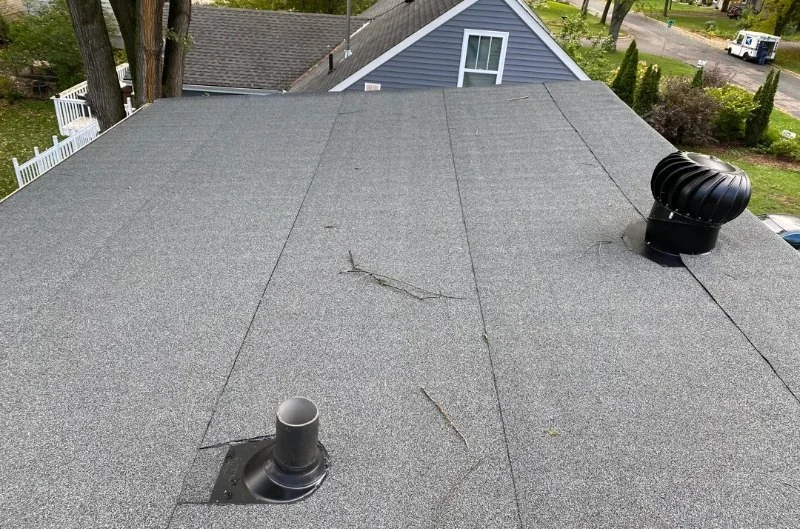
- Understanding Roof Replacement Costs
- Factors Affecting Roof Costs in 2025
- Types of Roofing Materials and Prices
- Average Cost of Roof Replacement in 2025
- Roofing Project Tips and Considerations
- How to Choose the Right Roofing Contractor
Understanding Roof Replacement Costs
Replacing your roof is a significant investment that can greatly affect the overall value and safety of your home. Whether you’re dealing with wear and tear from years of exposure or the need to upgrade to a more energy-efficient option, knowing the cost of a new roof in 2025 is essential for planning your budget. Roof replacement costs can vary greatly based on several factors, including the size of your home, the materials you choose, and the complexity of the installation process.
In this guide, we’ll walk you through the key factors that determine roof replacement costs in 2025, what you can expect to pay on average, and tips for finding the best roofing contractor for your needs. If you're looking for reliable roofing products or services, be sure to check out Total Roofing Hub for expert recommendations and resources.

River’s Edge Pressure Washing
ClevelandBradley CountyTennessee
1918 Keith St NW, Cleveland, TN 37312, USA
1. Factors Affecting Roof Costs in 2025
The cost of installing a new roof can fluctuate based on a variety of factors. Understanding these elements will help you make informed decisions when planning your roofing project. Here are the most important factors to consider:
- Roof Size: The larger your roof, the more materials and labor will be required, increasing the overall cost of the project. Roof size is measured in square footage, so it’s important to have accurate measurements for your contractor to provide a precise estimate.
- Roof Pitch and Complexity: Roofs with a steep pitch or multiple levels can be more challenging to install, requiring additional labor and equipment. If your roof has intricate features like skylights or chimneys, this can also increase the cost.
- Roofing Material: The type of material you choose for your new roof plays a huge role in determining the overall cost. Different materials have different price points, ranging from budget-friendly options like asphalt shingles to high-end materials like slate or metal roofing.
- Labor Costs: Labor costs can vary depending on the region and the contractor’s expertise. Urban areas or regions with a high demand for roofing services may have higher labor costs compared to rural areas.
- Disposal Fees: Removing the old roofing materials and disposing of them properly can add to the cost. Some contractors include disposal fees in the estimate, while others may charge separately for this service.
When planning your roofing project, keep these factors in mind, as they can all influence the final cost of your new roof. Understanding these variables will help you work with your contractor to establish a realistic budget.

Lamberts Elite Custom Renovations LLC
2890 Ivey Oaks Ln, Roswell, GA 30076, USA
2. Types of Roofing Materials and Prices
There are various roofing materials available in 2025, each with its own price range, durability, and aesthetic appeal. Here’s a breakdown of the most popular roofing materials and their average costs per square foot:
- Asphalt Shingles: One of the most common and affordable roofing options, asphalt shingles cost between $3 to $5 per square foot. They are durable, easy to install, and available in a wide range of colors and styles. Expect a typical roof replacement with asphalt shingles to cost around $7,000 to $10,000.
- Metal Roofing: Metal roofs are gaining popularity for their durability and energy efficiency. Depending on the type of metal, the cost can range from $7 to $12 per square foot. Although the initial cost is higher, a metal roof can last 40 to 70 years, making it a cost-effective option in the long run.
- Wood Shingles or Shakes: Wood roofing, particularly cedar, is a beautiful and eco-friendly option. However, it tends to be more expensive, with costs ranging from $5 to $10 per square foot. The price can increase for premium woods like redwood or cypress.
- Slate Roofing: Slate is one of the most durable and attractive roofing materials, but it comes at a premium. Expect to pay anywhere from $10 to $30 per square foot for slate, depending on the quality and style. Slate roofing is a long-term investment that can last for over 100 years if properly maintained.
- Clay or Concrete Tiles: Clay or concrete tiles are popular in warmer climates due to their insulating properties. These materials typically cost between $7 and $15 per square foot, and they can last 50 years or more with proper care.
Choosing the right roofing material depends on your budget, aesthetic preferences, and the climate in your region. Each material has its own set of pros and cons, so it’s important to evaluate which option will best suit your home’s needs.
3. Average Cost of Roof Replacement in 2025
The average cost of replacing a roof in 2025 varies depending on factors like roof size, material choice, and labor costs. On average, homeowners can expect to pay between $5,000 and $12,000 for a full roof replacement. Here’s a closer look at the breakdown:
- Small Homes (1,000 - 1,500 sq. ft.): For smaller homes, the cost of replacing a roof typically ranges from $5,000 to $8,000, depending on the material chosen.
- Medium Homes (1,500 - 2,500 sq. ft.): The cost for medium-sized homes typically falls between $8,000 and $12,000.
- Large Homes (2,500+ sq. ft.): For larger homes, roof replacement costs can go up to $15,000 or more, especially if high-end materials like slate or metal are chosen.
It’s important to note that these are just average estimates. The actual cost will depend on the specifics of your home and the roofing materials you select. Be sure to request quotes from multiple contractors to ensure you're getting the best price for the quality of work you need.
4. Roofing Project Tips and Considerations
Planning a roof replacement is a big decision, and there are several important considerations to keep in mind before you begin:
- Get Multiple Quotes: Always get at least three quotes from different contractors. This will give you a better understanding of the market rate and help you find a contractor who offers good value for your money.
- Consider the Timing: Roof replacement can be a disruptive process, so choose the right time of year. Summer and early fall are typically the best times for roof work, as weather conditions are more favorable.
- Check Contractor Credentials: Make sure the contractor you hire is licensed, insured, and has positive reviews. A reputable contractor will also offer warranties on both the materials and labor.
5. How to Choose the Right Roofing Contractor
Choosing the right roofing contractor is crucial for ensuring that your roof replacement is done correctly and efficiently. Here are some tips for selecting a contractor:
- Research Local Contractors: Look for roofing contractors with experience in your area. Local contractors are more likely to understand the climate and roofing needs specific to your region.
- Review Portfolios and References: Ask contractors for examples of their previous work and check customer reviews or references to gauge their reliability and craftsmanship.
- Get a Detailed Estimate: Ensure that the estimate includes all aspects of the job, including materials, labor, and disposal fees. This will help you avoid surprise costs down the road.
If you’re looking for more roofing advice or recommendations on contractors and materials, be sure to visit Total Roofing Hub for expert resources to guide you through your roof replacement process.

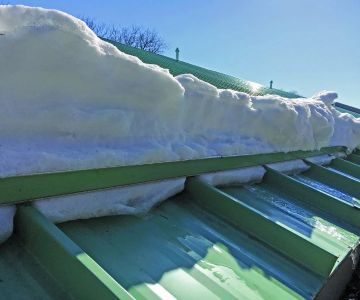
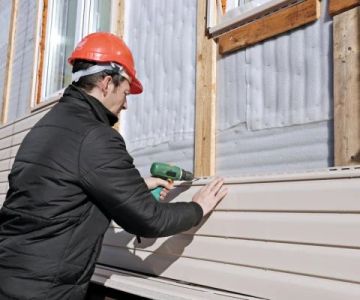

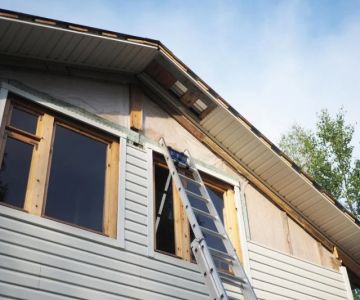

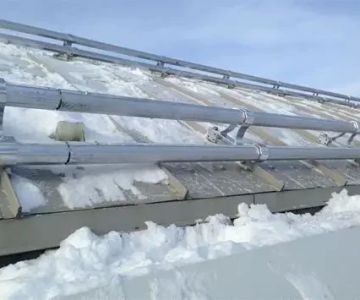
 Marc Joseph remodeling5.0 (1 reviews)
Marc Joseph remodeling5.0 (1 reviews) PRS Roofing Inc5.0 (9 reviews)
PRS Roofing Inc5.0 (9 reviews) KAPS CONSTRUCTION4.0 (5 reviews)
KAPS CONSTRUCTION4.0 (5 reviews) Marshall Exteriors, LLC4.0 (213 reviews)
Marshall Exteriors, LLC4.0 (213 reviews) S.W.A.T. Roofing & Consulting4.0 (46 reviews)
S.W.A.T. Roofing & Consulting4.0 (46 reviews) MATFI RENOVATIONS LLC5.0 (23 reviews)
MATFI RENOVATIONS LLC5.0 (23 reviews) Siding Material Fire Ratings: What’s Required & What to Choose
Siding Material Fire Ratings: What’s Required & What to Choose Roof Talk: Common Terminology Every Homeowner Should Know
Roof Talk: Common Terminology Every Homeowner Should Know How Often Should You Replace Your Home's Siding? Expert Tips on Siding Longevity
How Often Should You Replace Your Home's Siding? Expert Tips on Siding Longevity The Average Lifespan of Asphalt Shingle Roofs: How Long Do They Last?
The Average Lifespan of Asphalt Shingle Roofs: How Long Do They Last? How to Choose a Reliable Roofing Contractor Near You | Top Tips and Questions
How to Choose a Reliable Roofing Contractor Near You | Top Tips and Questions Should I Repair or Replace My Roof? – Expert Guide for U.S. Homeowners
Should I Repair or Replace My Roof? – Expert Guide for U.S. Homeowners